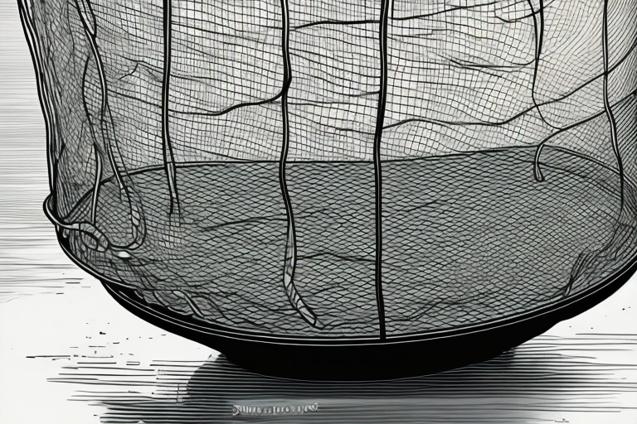
Properly disposing of fishing gear is crucial in protecting marine life and ecosystems from the harmful effects of abandoned, lost, or discarded fishing gear.
How to Properly Dispose of Fishing Gear to Avoid Harming Marine Life
Welcome to our unique and adventurous website, dedicated to those who are leaving the rat race behind, purchasing a boat, and setting sail to explore the world with their families. Our site is a comprehensive resource for all things related to this lifestyle, providing practical advice, personal stories, and insightful guides to help our readers navigate this exciting journey.
In this article, we will discuss the importance of properly disposing of fishing gear to protect marine life. As sailors and explorers, we have a responsibility to care for the environment and the creatures that inhabit it. By following the guidelines outlined in this article, you can help ensure that your fishing activities have a minimal impact on the delicate ecosystems you encounter on your journey.
The Problem: Abandoned, Lost, or Discarded Fishing Gear
Abandoned, lost, or discarded fishing gear (ALDFG) is a significant problem for marine life and the environment. According to the Food and Agriculture Organization of the United Nations, an estimated 640,000 tons of fishing gear is lost or discarded in the oceans each year. This gear, which includes nets, lines, traps, and other equipment, can continue to catch and kill marine life for years or even decades after it has been abandoned.
This phenomenon, known as “ghost fishing,” poses a significant threat to marine life, including fish, turtles, seabirds, and marine mammals. In addition to causing injury and death to these animals, ALDFG can also damage sensitive habitats, such as coral reefs and seagrass beds, and contribute to the growing problem of marine debris.
As sailors and adventurers, we have a responsibility to do our part to address this issue and protect the marine environment for future generations. One of the most effective ways to do this is by properly disposing of our fishing gear and encouraging others to do the same.
Proper Disposal of Fishing Gear: A Step-by-Step Guide
1. Inspect and Repair Your Gear Regularly
One of the primary reasons that fishing gear is lost or abandoned is because it becomes damaged and is no longer functional. By inspecting your gear regularly and making any necessary repairs, you can help ensure that it remains in good working order and is less likely to be lost or discarded.
- Check your nets, lines, and traps for signs of wear and tear, such as frayed edges, broken strands, or rusted parts.
- Repair any damage promptly, using appropriate materials and techniques.
- Replace any gear that is beyond repair with new, high-quality equipment.
2. Use Environmentally Friendly Gear
Some types of fishing gear are more harmful to the environment than others. By choosing gear that is designed to minimize its impact on marine life, you can help reduce the risk of ghost fishing and other environmental problems.
- Opt for biodegradable or non-entangling nets and lines, which are less likely to cause harm to marine life if they are lost or discarded.
- Choose traps and pots with escape panels or biodegradable fastenings, which allow trapped animals to escape if the gear is abandoned.
- Avoid using gear made from materials that are known to be harmful to the environment, such as lead weights or plastic lures.
3. Dispose of Unwanted Gear Responsibly
If you have fishing gear that you no longer need or that is beyond repair, it is essential to dispose of it responsibly. This means ensuring that it does not end up in the ocean or other natural environments where it could cause harm to marine life.
- Contact your local waste management facility or recycling center to find out how to dispose of unwanted fishing gear in your area.
- Participate in fishing gear recycling programs, if available, to ensure that your old gear is repurposed or recycled in an environmentally friendly way.
- Never discard fishing gear in the ocean, on the beach, or in other natural environments.
4. Retrieve Lost Gear Whenever Possible
If you lose fishing gear while out on the water, make every effort to retrieve it. This can help prevent ghost fishing and other environmental problems associated with ALDFG.
- Use GPS or other navigational tools to mark the location of lost gear, so you can return to the area and attempt to retrieve it.
- Employ grappling hooks, underwater cameras, or other equipment to help locate and recover lost gear.
- If you are unable to retrieve lost gear yourself, consider reporting its location to local authorities or environmental organizations that may be able to assist with recovery efforts.
5. Educate Others About the Importance of Proper Gear Disposal
As sailors and adventurers, we have a unique opportunity to spread awareness about the importance of proper fishing gear disposal and the dangers of ALDFG. By sharing our knowledge and experiences with others, we can help inspire a culture of environmental responsibility among our fellow seafarers.
- Share information about the dangers of ALDFG and the importance of proper gear disposal with friends, family, and fellow sailors.
- Participate in local workshops, seminars, or other events focused on marine conservation and responsible fishing practices.
- Encourage marinas, sailing clubs, and other organizations to implement policies and programs aimed at reducing ALDFG and promoting responsible gear disposal.
Conclusion
Properly disposing of fishing gear is an essential part of being a responsible sailor and adventurer. By following the guidelines outlined in this article, you can help protect marine life and preserve the beauty and health of the oceans for future generations. Remember, the choices we make today have a lasting impact on the world around us, so let’s do our part to ensure that our sailing adventures leave a positive legacy for those who come after us.